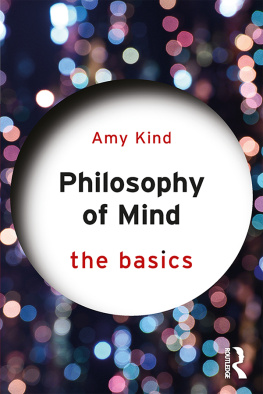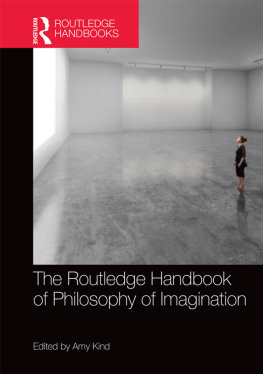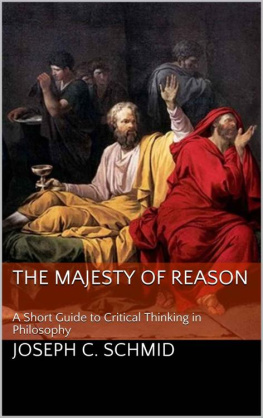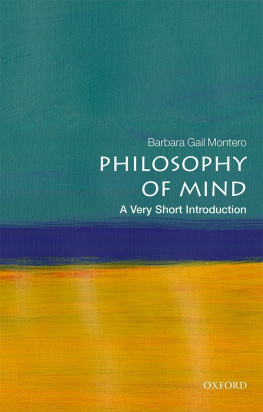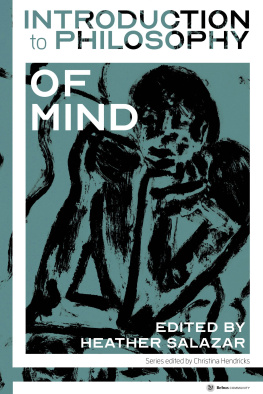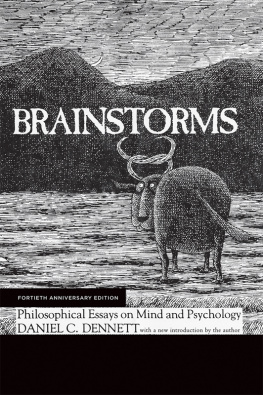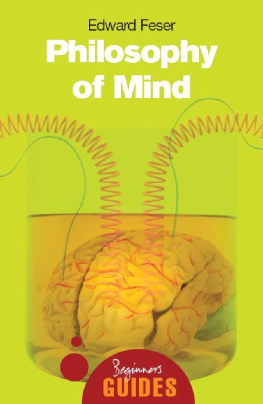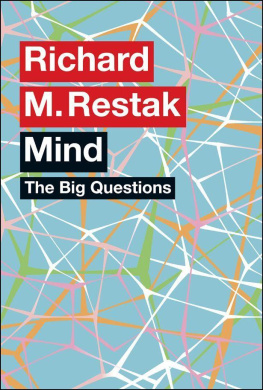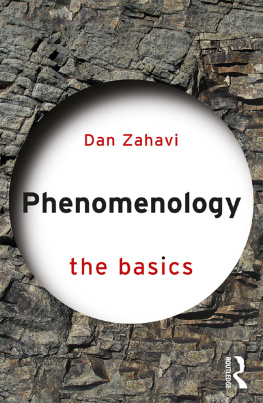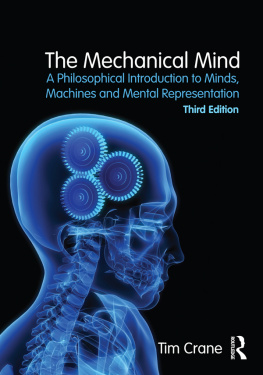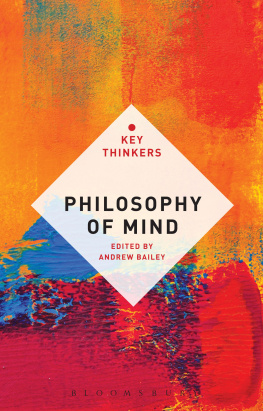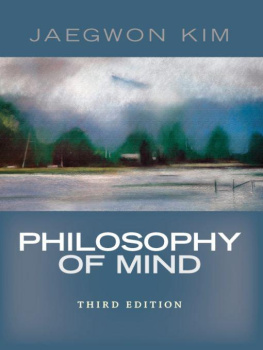Philosophy of Mind
THE BASICS
Philosophy of Mind: The Basics is a concise and engaging introduction to the fundamental philosophical questions and theories about the mind. The author Amy Kind, a leading expert in the field, examines central issues concerning the nature of consciousness, thought, and emotion. The book addresses key questions such as:
- What is the nature of the mind?
- What is the relationship between the mind and the brain?
- Can machines have minds?
- How will future technology impact the mind?
With a glossary of key terms and suggestions for further reading, Philosophy of Mind: The Basics is an ideal starting point for anyone seeking a lively and accessible introduction to the rich and complex study of philosophy of mind.
Amy Kind is Russell K. Pitzer Professor of Philosophy at Claremont McKenna College, USA. She is editor of Philosophy of Mind in the Twentieth and Twenty-First Centuries (volume six of The History of the Philosophy of Mind, Routledge 2016) and of The Routledge Handbook of Philosophy of Imagination (2016). She has also authored the introductory textbook Persons and Personal Identity (2015).
The Basics
American Philosophy
Nancy Stanlick
Animal Ethics
Tony Milligan
Artificial Intelligence
Kevin Warwick
Evolution
Sherrie Lyons
Food Ethics
Ronald Sandler
Free will
Meghan Griffith
Metaphysics
Michael Rae
Philosophy (fifth edition)
Nigel Warburton
Global Justice
Carl Death and Huw L. Williams
Human Genetics (second edition)
Ricki Lewis
Logic (second edition)
J.C. Beall
Bioethics (second edition)
Alastair Campbell
Eastern Philosophy (second edition)
Victoria Harrison
Phenomenology
Dan Zahavi
Atheism
Graham Oppy
Emotion
Michael Brady
Other titles in the series can be found at: https://www.routledge.com/The-Basics/book-series/B
First published 2020
by Routledge
2 Park Square, Milton Park, Abingdon, Oxon OX14 4RN
and by Routledge
52 Vanderbilt Avenue, New York, NY 10017
Routledge is an imprint of the Taylor & Francis Group, an informa business
2020 Amy Kind
The right of Amy Kind to be identified as author of this work has been asserted by her in accordance with sections 77 and 78 of the Copyright, Designs and Patents Act 1988.
All rights reserved. No part of this book may be reprinted or reproduced or utilised in any form or by any electronic, mechanical, or other means, now known or hereafter invented, including photocopying and recording, or in any information storage or retrieval system, without permission in writing from the publishers.
Trademark notice: Product or corporate names may be trademarks or registered trademarks, and are used only for identification and explanation without intent to infringe.
British Library Cataloguing in Publication Data
A catalogue record for this book is available from the British Library
Library of Congress Cataloging-in-Publication Data
Names: Kind, Amy, author.
Title: Philosophy of mind : the basics / Amy Kind.
Description: Abingdon Oxon; New York, NY : Routledge, 2020. | Includes bibliographical references and index.
Identifiers: LCCN 2019051831 (print) | LCCN 2019051832 (ebook) |ISBN 9781138807815 (hardback) | ISBN 9781138807822 (paperback) |ISBN 9781315750903 (ebook)
Subjects: LCSH: Philosophy of mind.
Classification: LCC BD418.3.K564 2020 (print) | LCC BD418.3 (ebook) |DDC 128/.2dc23
LC record available at https://lccn.loc.gov/2019051831
LC ebook record available at https://lccn.loc.gov/2019051832
ISBN: 978-1-138-80781-5 (hbk)
ISBN: 978-1-138-80782-2 (pbk)
ISBN: 978-1-315-75090-3 (ebk)
My first real interaction with philosophy of mind came as an undergraduate at Amherst College. I took my first philosophy of mind course from Jyl Gentzler, and I wrote my undergraduate thesis on the Chinese Room thought experiment under the supervision of Alex George. Their teaching continues to influence me to this day. As a graduate student at UCLA, I benefited from classes and conversations on issues in philosophy of mind with Joseph Almog and Tyler Burge, as well as fellow graduate students such as Torin Alter and Mike Jacovides. Serving as a TA for Dana Nelkins summer course on philosophy of mind proved hugely influential for how I would myself go on to teach that class.
Over my years of teaching at Claremont McKenna College, my thinking about the issues discussed in this book has been further shaped by my interactions with the many wonderful undergraduates who have taken my introductory courses and my courses on Philosophy of Mind and Philosophy Through Science Fiction. They also help me to keep updating my television and movie references, though Im probably never going to stop making reference to Star Trek. Recently, Dri Tattersfield 21 read a draft of several chapters of the book and offered useful feedback that helped me to make the book more user-friendly.
At various times over the years, friends and colleagues have given me feedback on some of the chapters of this book and/or discussed some of the issues with me. I wont try to name them all now for fear of forgetting someone. The philosophy hive mind on social media gave me several good suggestions for further reading. Robert Howell gave me particularly good advice on some key issues as I was finalizing the manuscript, and Brandon Polite sent me extremely helpful comments on the entire draft manuscript. I am also very grateful to the five anonymous referees who reviewed my original proposal for this book and to the three anonymous referees who reviewed the draft manuscript. The book is much better as a result of their comments.
As always, my deepest thanks go to my husband Frank Menetrez, and my two sons, Stephen and Joseph.
In Harry Potter and the Order of the Phoenix, the fifth book in J.K. Rowlings Harry Potter series, Harry finally kisses Cho, a classmate on whom he has had a crush since his early days at Hogwarts School of Witchcraft and Wizardry. Unfortunately, however, Cho starts crying during the kiss. Were Chos tears a sign that Harry is a terrible kisser? Thats the explanation that Harry and Ron come up with when discussing the situation afterwards. In an effort to set them straight, Hermione tries to get them to understand how things likely seem from Chos perspective:
Well, obviously, shes feeling very sad, because of Cedric dying. Then I expect shes feeling confused because she liked Cedric and now she likes Harry, and she cant work out who she likes best. Then shell be feeling guilty, thinking its an insult to Cedrics memory to be kissing Harry at all, and shell be worrying about what everyone else might say about her if she starts going out with Harry. And she probably cant work out what her feelings toward Harry are anyway, because he was the one who was with Cedric when Cedric died, so thats all very mixed up and painful. Oh, and shes afraid shes going to be thrown off the Ravenclaw Quidditch team because shes been flying so badly.
(Rowling 2014, 424)
When encountering Hermiones explanation, some readers might disagree with the accuracy of her assessment of Chos feelings, while others might think she got things exactly right. Still others might share Rons stunned reaction: One person cant feel all that at once, theyd explode. Whichever of these reactions one has, however, the kinds of characterizations that Hermione uses to describe Cho that shes thinking and feeling and worrying, that she has conflicting romantic inclinations, that shes sad and afraid and confused are no doubt familiar ones. All of these characterizations seem a perfectly natural way to describe a teenager like Chos states of mind.

